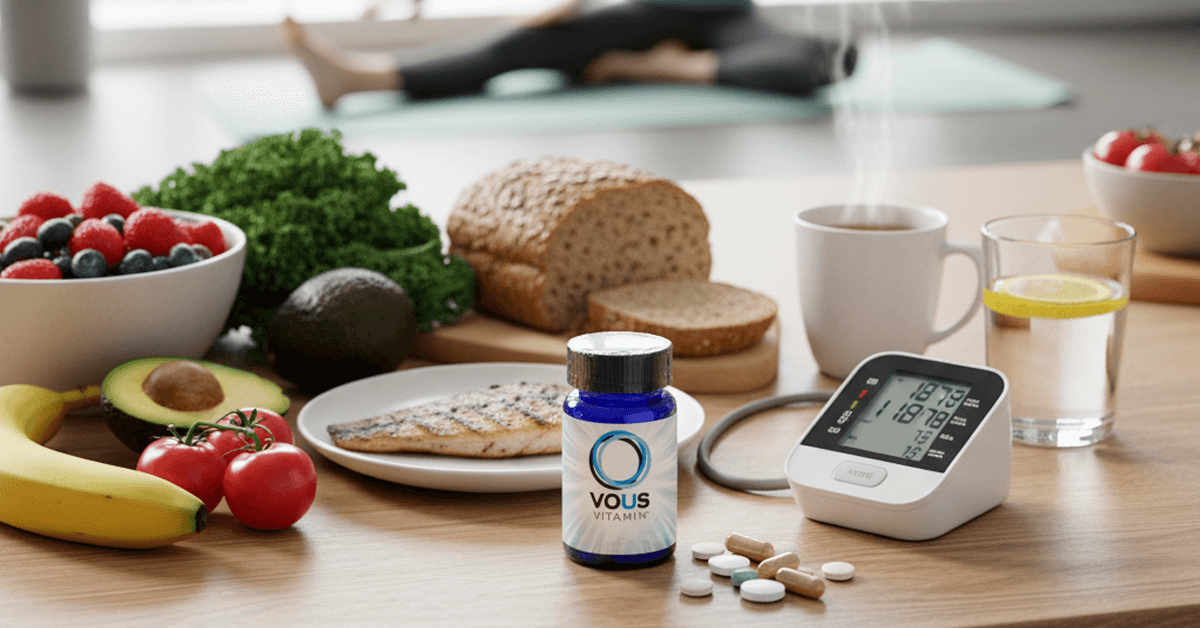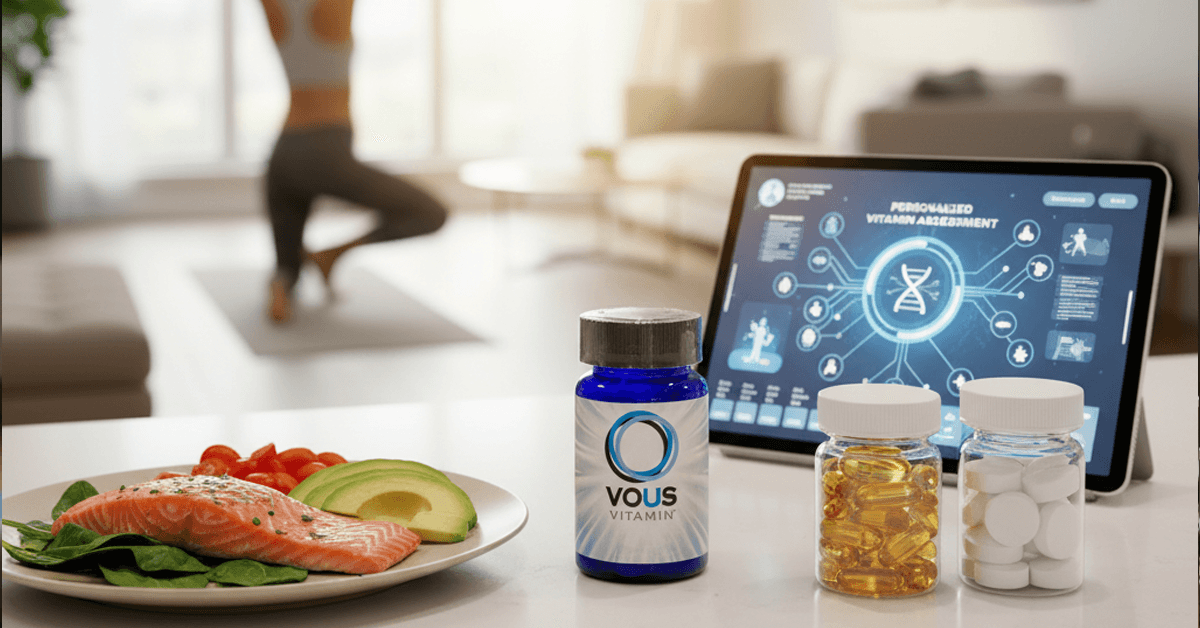

When women start to experience menopausal issues, they immediately start to investigate what products can provide relief. There are a number of nutritional supplement products that advertise positive effects for menopausal symptoms, but these products frequently lack the dosing levels that align with the leading clinical evidence. A personalized vitamin program can target the formula to your specific needs and make adjustments in dosing to align with the leading evidence. Personalized vitamin programs involve an online assessment and sometimes biological or genetic inputs, which may or may not be necessary to get a good result.
What to do? Menopause is a complicated issue, and, as with most issues, there is no one-size-fits-all answer. Until the late 1990s it was common practice to give women hormone replacement therapy (HRT) once they entered menopause. It made sense: replace what’s missing and you can just pretend “the change” never happened. While this is so when it comes to hot flashes (they tend to disappear), there are some downsides to HRT that preclude its being an ideal solution for every woman. HRT typically consists of replacing estrogen and progesterone at low doses with prescription doses of either hormones in either oral-, cream-, or patch-delivery systems. Estrogen is most helpful in reducing menopausal symptoms, but in women who have a uterus (i.e., those who have not had a hysterectomy) it is important that they receive progesterone with the estrogen to prevent cancer of the lining of the uterus, which can result from estrogen by itself (called “unopposed estrogen,” since the progesterone controls the growth of the lining of the uterus that estrogen causes).
Estrogen and progesterone together, or combined therapy, have some pros and some cons. Relief from hot flashes and other symptoms is a big plus. Other benefits include improvement in bone density and improved vaginal health (less dryness and atrophy of tissues), which can help with some aspects of urinary incontinence as well. As with any medication, there are always potential side effects. Even this replacement of hormones the body naturally produces, when given therapeutically, turns out not to be the fountain of youth upon which many have hung their hopes. The Women’s Health Initiative, a large series of studies examining these very issues, came up with some conclusions about the drawbacks of HRT. The group of women taking the estrogen and progesterone combo did end up with higher rates of heart attacks, strokes, blood clots, and breast and colon cancer. The estrogen-only group (no progesterone used because of no uterus) had increased risk of stroke and blood clot, but no change in risk of heart disease or colon cancer. The effect of estrogen only on breast cancer is still unclear, with some data suggesting a slight protective effect as compared with the harmful effect of combined therapy.
So what is the takeaway? This data suggests that hormone replacement should certainly not be used across the board in menopausal women. And while it is useful in treating bone density and hot flashes, the increased risk of cardiovascular problems and malignancies suggests very judicious use is prudent. It is our practice to recommend HRT only to women who have intolerable menopausal symptoms that are not amenable to other therapies (more on what those might be later). They should use the lowest dose possible and for the least amount of time possible. The use of topical estrogens for vaginal dryness is of less concern since they are considered to act locally and not be systemically absorbed.
A very popular practice since the mid-2000s has been the use of “bioidentical hormones,” which are compounded hormones given in varying doses on an individual basis, either in the form of pills, patches, or gels. This practice often includes the use of estrogen, progesterone, testosterone, and DHEA in varying amounts.
In theory, we love the idea that we are not all the same and each have different individual needs. In fact, one of our founding missions at Vous Vitamin® has been to address people’s individual needs in
regard to vitamins. However, we do not believe the science currently supports these particular methods of hormone replacement. There are no significant studies that show any benefit to these over traditional hormones; and especially given the varied methods, absorption, and general lack of standardization in these practices, it is very hard to safely recommend them. The use of testosterone and DHEA are actually not FDA approved for use in women at all. Also, there is no standardization to the methods by which individuals are measured and applied to therapy. In fact, studies have shown that there is little correlation between hormone levels and actual menopausal symptoms. Using these levels to target therapies, then, does not make logical sense. Therefore, we advise extreme caution in the use of “bioidenticals.” We understand that many women swear by the wonderful effects on their hot flashes, sex drive, and more. However, we believe many of these issues can be remedied with more proven, potentially safer means, both prescription and not.
Finding the right supplement routine is critical for your overall health. A personalized vitamin brand can perform an assessment of your needs and get you to a formula that will likely be more effective in addressing your issues.


In a world where health should require an individualized approach by each person, generic multivitamins often cannot provide the same nutrients that your body really


For years, people have relied on generic vitamins hoping to fill nutritional gaps. However, what was working just a few decades ago does not suit


The majority of the population buys generic vitamins at the store with the hope that they will meet the nutrient requirements. However, the truth is


As individuals increasingly shift toward proactive health and wellness grounded in data, individualized approaches are sought to draw from, rather than antiquated, generic, one-size-fits-all multivitamins.
| Cookie | Duration | Description |
|---|---|---|
| cookielawinfo-checkbox-analytics | 11 months | This cookie is set by GDPR Cookie Consent plugin. The cookie is used to store the user consent for the cookies in the category "Analytics". |
| cookielawinfo-checkbox-functional | 11 months | The cookie is set by GDPR cookie consent to record the user consent for the cookies in the category "Functional". |
| cookielawinfo-checkbox-necessary | 11 months | This cookie is set by GDPR Cookie Consent plugin. The cookies is used to store the user consent for the cookies in the category "Necessary". |
| cookielawinfo-checkbox-others | 11 months | This cookie is set by GDPR Cookie Consent plugin. The cookie is used to store the user consent for the cookies in the category "Other. |
| cookielawinfo-checkbox-performance | 11 months | This cookie is set by GDPR Cookie Consent plugin. The cookie is used to store the user consent for the cookies in the category "Performance". |
| viewed_cookie_policy | 11 months | The cookie is set by the GDPR Cookie Consent plugin and is used to store whether or not user has consented to the use of cookies. It does not store any personal data. |